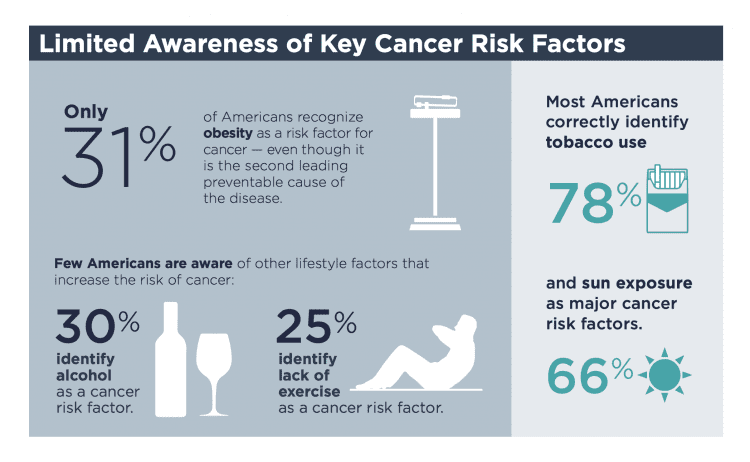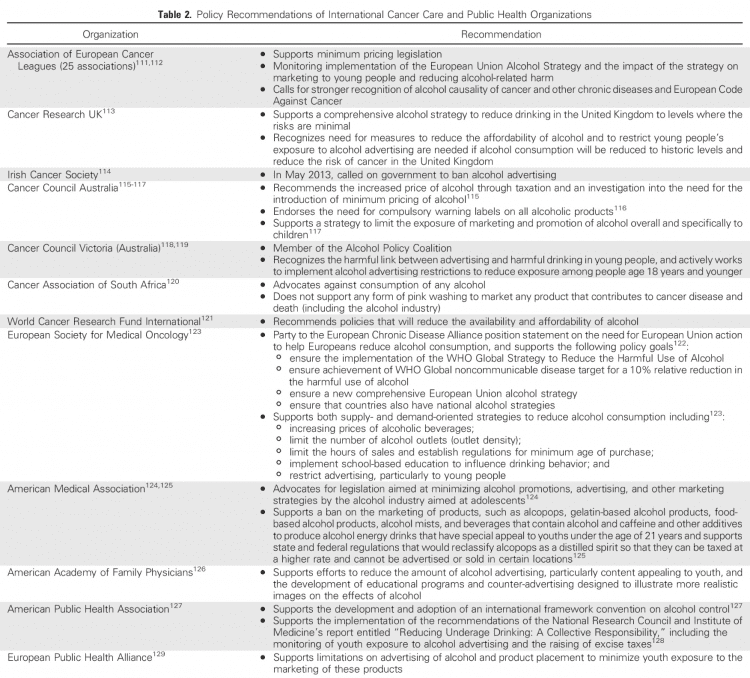United States: Cancer Doctors Highlight Link Of Alcohol And Cancer And Underline Importance Of Alcohol Policy For Prevention, Reduction Of Cancer Risk
The American Society of Clinical Oncology (ASCO), which represents many of the country’s leading cancer doctors, is highlighting the ties between alcohol and cancer and the important role evidence-based alcohol policy measures play in preventing and reducing alcohol-related cancer risk.
Other medical groups have been publicly highlighting the risks of alcohol as a human carcinogen, in the same group as asbestos and tobacco. This is the first time that ASCO has taken a stand drawing much-needed attention to the fact that alcohol causes 7 types of cancer. So far less than one third of the adult population is aware of the fact that alcohol is a risk factor for cancer.
The importance of alcohol drinking as a contributing factor to the overall cancer burden is often underappreciated. In fact, alcohol drinking is an established risk factor for several malignancies. As a potentially modifiable risk factor for cancer, addressing high-risk alcohol use is one strategy to reduce the burden of cancer,” ASCO wrote.
[A]lcohol drinking is a potentially modifiable risk factor that can be targeted with preventive interventions at both the policy and the individual levels.”
Public health strategies to prevent, reduce alcohol-related cancer risk
Alcohol-related cancers are modifiable and preventable. By thus issuing their statement, ASCO joins a growing number of international organizations by establishing a platform to support effective public health strategies to effectively address the link between alcohol and cancer. The group also opposes “pink washing,” in which alcohol companies drape their products in pink ribbon to enhance sales, a practice it opposes “given the consistent evidence that shows the link between alcohol consumption and an increased risk of breast cancer.”
Policies to reduce excessive alcohol consumption should be evidence based, culturally sensitive, and equitable in their implementation.
Recognizing that excessive alcohol use can delay or negatively impact cancer treatment and that reducing high-risk alcohol consumption is cancer prevention, ASCO joins the growing number of cancer care and public health organizations to support strategies designed to prevent high-risk alcohol consumption…,” writes ASCO further.
These policies are, according to the special article:
- Regulate alcohol outlet density,
- Increase alcohol taxes and prices,
- Maintain limits on days and hours of sale,
- Enhance enforcement of laws prohibiting sales to minors,
- Restrict youth exposure to advertising of alcoholic beverages,
- Resist further privatization of retail alcohol sales in communities with current government control,
- Include alcohol control strategies in comprehensive cancer control plans.
Overwhelming scientific evidence
For the statement, ASCO researchers reviewed previously published studies and concluded that 5.5% of all new cancers and 5.8% of all cancer deaths worldwide could be attributed to alcohol. Their review shows that alcohol plays a causal role in cancers of the throat and neck, voice box, liver and colon, esophageal squamous cell carcinoma and breast cancer in women.
The more you drink, the higher the risk,” said Dr. Clifford A. Hudis, the chief executive of ASCO, per New York Times.
It’s a pretty linear dose-response.”


